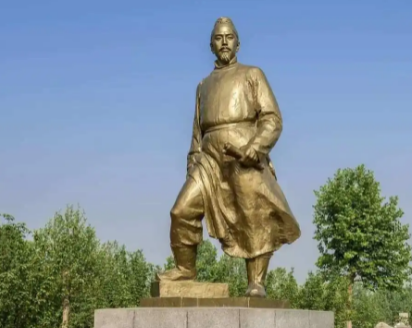The Changbai Mountain Range, located in the northeast of China, is one of the birthplaces of the Qing Dynasty and also the sacred mountain of the Manchu people. However, during the Qing Dynasty's rule, the Changbai Mountain Range experienced a period of prohibition. This policy was based on various reasons such as politics, economy, and culture. This article will explore why the Qing Dynasty banned the Changbai Mountain Range and the impact of this policy.

1. Political Considerations for Protecting the Dragon Vein
The Changbai Mountain Range is regarded as the birthplace of the Manchu people, carrying significant political and cultural symbolism. In feng shui theory, Changbai Mountain is considered the "dragon vein of the northeast," linked to the rise and fall of the Qing Dynasty. To protect this "dragon vein" from destruction, the Qing government implemented a prohibition policy, banning random access to the mountain range to prevent damage to the feng shui and ecological balance within.
2. Strategic Need for Maintaining Border Stability
Located in a border region adjacent to North Korea, the Changbai Mountain Range holds strategic importance. To prevent external intrusions and internal rebellions, the Qing government reinforced control over the border region by banning the Changbai Mountain Range. This also helped prevent illegal activities such as mining and poaching, ensuring border stability and security.
3. Environmental Awareness in Protecting Natural Resources
The Changbai Mountain Range is rich in natural resources and boasts a unique ecosystem. The Qing government recognized that overexploitation would cause irreversible damage to the natural environment. Therefore, the prohibition policy also reflected the ancient Chinese's awareness of natural environmental protection. By restricting human activities, the forest, water sources, and wildlife resources of Changbai Mountain were preserved.
4. Cultural and Religious Influences
Changbai Mountain is not only a natural landscape but also a sacred place for the Manchu people, carrying significant religious and cultural meanings. The Qing rulers believed in Shamanism, considering Changbai Mountain as the abode of gods and deserving of respect and worship. The ban on Changbai Mountain was also aimed at maintaining traditional beliefs and culture.
Conclusion:
The Qing Dynasty's prohibition policy on the Changbai Mountain Range was a complex decision-making process involving politics, strategy, environmental protection, and culture. This policy may have played a positive role at that time, but it also restricted the exploitation and utilization of natural resources. With the development of history, the prohibition of the Changbai Mountain Range was eventually lifted, and this ancient land gradually unveiled its mysteries to the world. Looking back on this history today, we can not only better understand the policies and ideas of the Qing Dynasty but also draw inspiration from it for the protection of the natural environment and the inheritance of cultural heritage.
Disclaimer: The above content is sourced from the internet and the copyright belongs to the original author. If there is any infringement of your original copyright, please inform us and we will delete the relevant content as soon as possible.





























